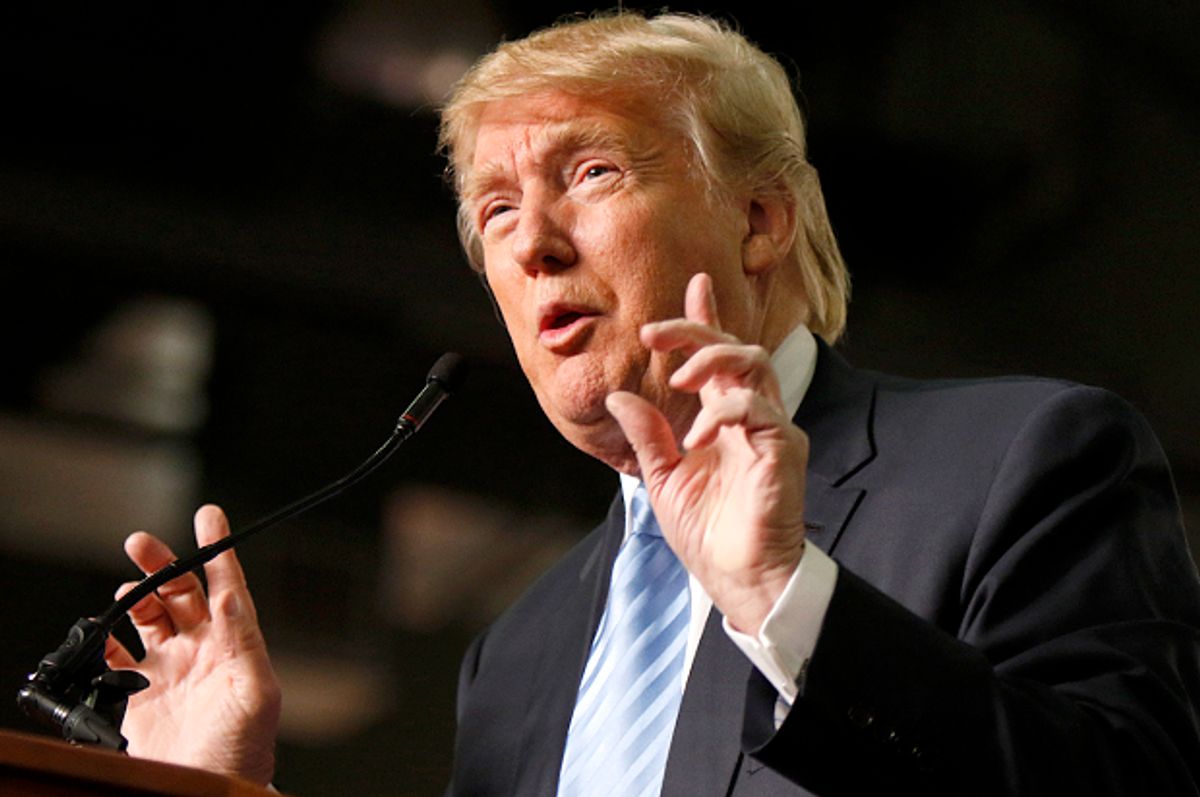Pundits have spent a lot of time analyzing the Trump phenomenon. For the most part, Trump is considered an anomaly, a product of a uniquely hostile political climate. He’s also a massive celebrity with a powerful brand and a talent for self-promotion, and that goes a long way in our media culture.
Trump’s success as an anti-establishment candidate has raised a lot of questions about the ability of party elites to dictate the nomination process. Party leaders – particularly in the GOP – have traditionally decided who the nominees would be, but that’s clearly changed.
In the case of Trump, the question is whether he’s just an outlier or an inevitable byproduct of systemic changes in our political system. If it’s the latter, then we can expect to see more Trump-like candidates in the future; that is to say, more celebrities masquerading as serious candidates (à la Sarah Palin and Herman Cain).
In a recent interview with the New York Times, David Karol, a political scientist who studies the roles of parties in American politics, was asked to explain Trump’s curious rise. His answers were interesting, but also deeply wrong.
Karol argues that Trump is fundamentally unique. “The first thing I would note,” he says, “is that Trump differs from the rest. Other outsiders have benefited from recent changes in the ways that parties nominate candidates, but Trump could have run the same campaign he is running today decades ago. He doesn’t need recent changes to do what he is doing.”
The recent changes Karol emphasizes are in “the campaign finance system, the rise of partisan and social media, the growing number of debates, and polarization of the parties.” These are significant variables, and no doubt account for the success of fringe candidates like Carson and Cruz and Fiorina.
But Karol believes “Trump’s popularity doesn’t stem from any of these things.” And that’s because Trump has benefited primarily from name recognition, the failure of the GOP to coalesce around a single candidate, anti-immigration hysteria, and his capacity to self-finance, which means he doesn’t need the support of the establishment.
Perhaps more significantly, Trump’s “campaign is based on media coverage, not ad buys,” Karol claims. “He is not a product of Fox news – in fact, he has feuded with them. He was leading the polls before the first debate, and in a polarized era he is not an ideologue or a party man. So, while these systemic changes help other candidates…they don’t explain Trump’s rise.”
This is where Karol errs. For his part, Trump’s uniqueness as a candidate means it’s a “mistake to assume his campaign signals systemic changes in the process.” Trump may not be an ideologue (he’s too vacuous for that), but there’s no question he’s benefited from partisan media and an ideologically charged climate. As Karol’s interviewer notes, “After the 1968 conventions, both parties moved toward a more open process for nominating candidates – one that took decisions away from party elites in smoke-filled back rooms and gave power to voters in primaries and caucuses.”
The shift in power from party insiders to primary voters is crucial. The nomination process turns increasingly on the voters now, for better or worse. How their attitudes are shaped therefore matters a great deal. Karol assumes that because Trump has feuded with Fox he isn’t a product of their coverage. But’s that not at all true. Trump is an unintended product of Fox News, but a product nonetheless. Trump only exists because his supporters live in a fact-free bubble that has been engineered by conservative media. And while conservative media clearly favors the Republican Party, ultimately it's driven by the profit motive, not partisan loyalties.
In a column for FiveThirtyEight.com this week, Anna Pluta asks why Trump’s relentless bullshitting hasn’t hurt his campaign. Pluta writes:
“Donald Trump has a consistently loose relationship with the truth…Politifact rolled his numerous misstatements into one big ‘lie of the year.’ But all the fact-checking in the world hasn’t pushed Trump toward a more evidence-based campaign, and his support has held steady or even increased in the some polls. What explains Trump’s ability to seemingly overcome conventional political wisdom?”
Pluta correctly answers her question: Trump’s “supporters have shown signs of being misinformed. Political science research has shown that the behavior of misinformed citizens is different from those who are uninformed, and this difference may explain Trump’s unusual staying power.” Misinformed means voters are fed erroneous information in order to flatter their biases and concretize their beliefs. Consequently, “misinformed citizens tend to be the most confident in their views.”
We know that people who get their information from Fox News are exceptionally misinformed, and that’s because Fox News cares about ratings, not the facts. And Fox has helped create an entire conservative media ecosystem that spins false narratives, fuels resentment, and cultivates an indifference to truth. All of this has shaped the conservative base in the last 15 years or so.
Donald Trump only exists because of this ecosystem, and to the extent that that’s true, Fox News and partisan media are responsible for him. The people at Fox News may not like the Frankenstein they’ve created, but that doesn’t make them any less accountable.



Shares